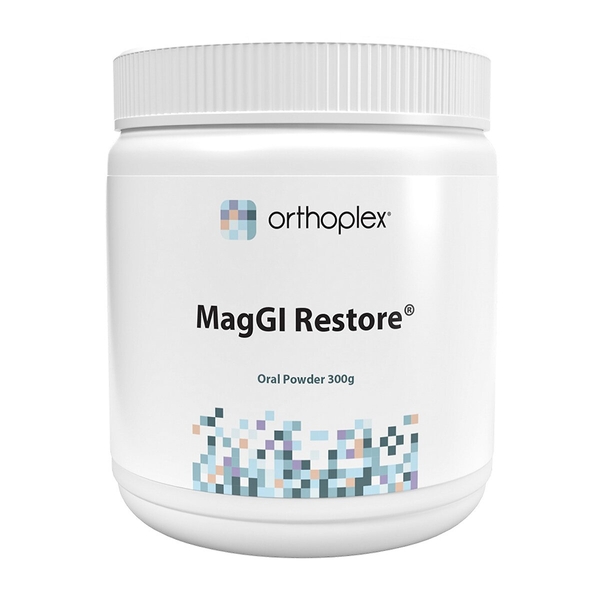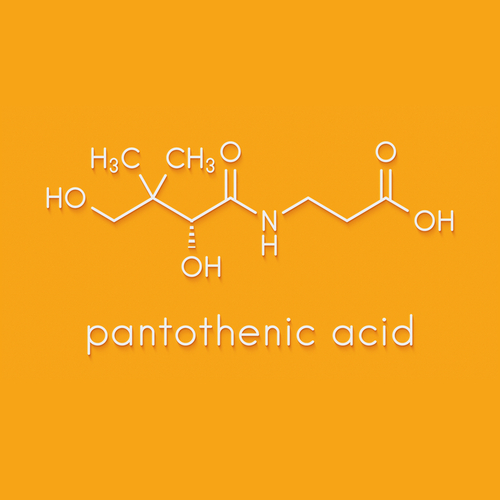
Pantothenic acid
Scientific names: D-pantothenic acid, Pantothenic acid
Alternative names: Acide D-Pantothénique, Acide Pantothénique, Ácido Pantoténico, B Complex Vitamin, Calcii Pantothenas, Calcium D-Pantothenate, Calcium Pantothenate, Complexe de Vitamines B, D-Calcium Pantothenate, D-Pantothenic Acid, D-Panthenol, D-Panthénol, D-Pantothénate de Calcium, D-Pantothenyl Alcohol, Dexpanthenol, Dexpanthénol, Dexpanthenolum, Pantéthine, Panthenol, Panthénol, Pantothenate, Pantothénate, Pantothénate de Calcium, Pantothenol, Pantothenylol, Vitamin B-5, Vitamin B5, Vitamina B5, Vitamine B5
Actions: Stimulant laxative
Background
Pantothenic acid is vitamin B5. It is widely found in both plants and animals including meat, vegetables, cereal grains, legumes, eggs, and milk.
Pantothenic acid helps the body utilize carbohydrates, proteins, and lipids. It is also important for maintaining healthy skin. Vitamin B5 is available as D-pantothenic acid, as well as dexpanthenol and calcium pantothenate, which are chemicals made in the lab from D-pantothenic acid.
People most commonly use pantothenic acid for pantothenic acid deficiency. Dexpanthenol, a chemical similar to pantothenic acid, is used for skin irritation, nasal swelling, wound healing, and other conditions, but there is no good scientific evidence to support these uses.
Pantothenic acid helps the body utilize carbohydrates, proteins, and lipids. It is also important for maintaining healthy skin. Vitamin B5 is available as D-pantothenic acid, as well as dexpanthenol and calcium pantothenate, which are chemicals made in the lab from D-pantothenic acid.
People most commonly use pantothenic acid for pantothenic acid deficiency. Dexpanthenol, a chemical similar to pantothenic acid, is used for skin irritation, nasal swelling, wound healing, and other conditions, but there is no good scientific evidence to support these uses.
Safety Safety definitions
When taken by mouth: Pantothenic acid is likely safe for most people. The recommended amount for adults is 5 mg per day. Larger amounts (up to 1 gram) seem to be safe for most people. But taking larger amounts increases the chance of side effects such as diarrhea.
When applied to the skin: Pantothenic acid and its related chemicals are likely safe when used short-term.
When given as a nasal spray: Dexpanthenol is possibly safe when used short-term.
When applied into the eye: Dexpanthenol is possibly safe when used short-term.
Breast-feeding: Pantothenic acid is likely safe when taken by mouth. The recommended intake is 7 mg daily during breast-feeding.
Children: It is likely safe for children to take pantothenic acid by mouth and apply pantothenic acid to the skin.
When applied to the skin: Pantothenic acid and its related chemicals are likely safe when used short-term.
When given as a nasal spray: Dexpanthenol is possibly safe when used short-term.
When applied into the eye: Dexpanthenol is possibly safe when used short-term.
Special Precautions & Warnings:
Pregnancy: Pantothenic acid is likely safe when taken by mouth. The recommended intake is 6 mg daily during pregnancy.Breast-feeding: Pantothenic acid is likely safe when taken by mouth. The recommended intake is 7 mg daily during breast-feeding.
Children: It is likely safe for children to take pantothenic acid by mouth and apply pantothenic acid to the skin.
Effectiveness
NatMed Pro rates effectiveness based on scientific evidence according to the following scale: Effective, Likely Effective, Possibly Effective, Possibly Ineffective, Likely Ineffective, Ineffective, and Insufficient Evidence to Rate.
Effective Effectiveness definitions
- Pantothenic acid deficiency. Taking 5-10 mg of pantothenic acid by mouth daily prevents and treats pantothenic acid deficiency.
Possibly ineffective Effectiveness definitions
- Skin damage caused by radiation therapy (radiation dermatitis). Applying dexpanthenol, a chemical similar to pantothenic acid, to irritated skin does not seem to reduce skin damage caused by radiation therapy.
Dosing & administration
Pantothenic acid is widely found in foods, including meat, vegetables, cereal grains, legumes, eggs, and milk. It's recommended that adults consume 5 mg pantothenic acid daily. During pregnancy, 6 mg should be consumed daily; when breastfeeding, 7 mg should be consumed daily. Recommended amounts for children depend on age.
In supplements, pantothenic acid is typically used together with other B vitamins in vitamin B complex formulations. Dexpanthenol, a chemical similar to pantothenic acid, is available in makeup, hair products, ointments, creams, gels, nasal sprays and eyedrops. Speak with a healthcare provider to find out what dose might be best for a specific condition.
In supplements, pantothenic acid is typically used together with other B vitamins in vitamin B complex formulations. Dexpanthenol, a chemical similar to pantothenic acid, is available in makeup, hair products, ointments, creams, gels, nasal sprays and eyedrops. Speak with a healthcare provider to find out what dose might be best for a specific condition.
Interactions with pharmaceuticals
It is not known if Pantothenic Acid interacts with any medicines. Before taking Pantothenic Acid, talk with your healthcare professional if you take any medications.
Interactions with herbs & supplements
There are no known interactions with herbs and supplements.
Interactions with foods
There are no known interactions with foods.
Products
View all productsPer sachet:
- Calcium pantothenate (Vitamin B5)
- Inulin (Dietary fibre)
- Marine collagen peptides 250 mg
- Lepidium meyenii (root) powder
- Lactobacillus rhamnosus (LR-32)
- Bifidobacterium longum (BL-05)
- Zinc
- Cannabis sativa powder 520 mg
- Arthrospira platensis (Spirulina) 370 mg
- Linum usitatissimum (seed) flour (Flaxseed) 250 mg
- Wheatgrass powder
- Sunflower lecithin
- Citrus limon (juice) (Lemon)
- Ananas comosus (Pineapple)
- Ascorbic acid (Vitamin C)
- Euterpe oleracea (berry) ext. (Acai)
- Chlorella pyrenoidosa powder
- Lycopersicon esculentum (Tomato)
- Apple pectin
- Beta vulgaris (root) powder (Beetroot)
- Citric acid anhydrous
- Citrullus lanatus (Watermelon)
- Fragaria ananassa (juice) powder (Strawberry)
- Garcinia mangostana (fruit) powder
- Punica granatum juice dry
- Carica papaya (fruit) powder
- Vaccinium macrocarpon (fruit) powder
- Natural vanilla flavour
- Lycium barbarum (fruit)
- Aristotelia chilensis (Maqui berry)
- Silybum marianum powder
- Astragalus membranaceus (root) powder
- Equisetum arvense (herb) powder
- Laminaria digitara (Kelp)
- Silica - colloidal anhydrous
- Daucus carota powder (Carrot)
- Camellia sinensis powder
- Withania somnifera (root) powder
- Eleutherococcus senticosus (root) powder
- Echinacea purpurea (root) powder
- Melissa officinalis powder
- Taraxacum officinale (leaf) powder
- Zingiber officinale (root) powder
- Rosa canina powder
- Vaccinium myrtillus (fruit) powder
- Ulmus rubra (bark) powder
- Mushroom powder
- Kakadu plum powder
- Panax ginseng powder
- Curcuma longa (root) powder
- Backhousia citriodora (leaf)
- Thaumatin
- Ananas comosus (Bromelain)
- Protease
- Phyllanthus emblica (fruit) powder
- Morindae officinalis (fruit) powder
- Marine algae
- Malpighia glabra (fruit) powder
- Medicago sativa 200 mg
- Sambucus nigra (fruit)
- Vaccinium corymbosum (fruit) powder
- Hordeum vulgare powder 200 mg
- Salvia hispanica (seed) powder
RRP: $29.95$25.47Save: 15%
Create account
Per bar:
- Calcium pantothenate (Vitamin B5)
- Soy protein isolate
- Whey protein concentrate
- Calcium caseinate
- Maltitol
- Theobroma cacao (Cocoa solids)
- Milk solids powder
- Soy lecithin
- Polyglycerol polyricinoleate (E-476)
- Natural vanilla flavour
- Polydextrose
- Glycerol
- Sorbitol
- Sunflower oil
- Natural flavours
- Thiamine hydrochloride (Vitamin B1)
- Riboflavin (Vitamin B2)
- Pyridoxine hydrochloride (Vitamin B6)
- Ascorbic acid (Vitamin C)
- Cholecalciferol
- d-alpha-Tocopheryl acid succinate
- Nicotinamide (Vitamin B3)
- Calcium hydrogen phosphate
- Ferrous fumarate
- Zinc bisglycinate (Zinc amino acid chelate)
- Chromium nicotinate
- Copper gluconate
- Manganese amino acid chelate
- Potassium iodide
- Biotin
- Theobroma cacao (Cocoa powder)
- Tocopherols concentrate - mixed (Vitamin E)
- Acacia sp. (fibre)
- Stevia rebaubiana
Practitioner product
Per 48 g:
- Calcium pantothenate (Vitamin B5)
- Whey protein concentrate
- Whey protein isolate
- Soy lecithin
- Theobroma cacao (Cocoa powder)
- Medium Chain Triglycerides (powder) (MCT)
- Calcium phosphate dibasic
- Flavour
- Magnesium citrate
- Cyamopsis tetragonoloba (Guar gum)
- Calcium citrate
- Zinc gluconate
- Ascorbic acid (Vitamin C)
- Beta-carotene carotenoids (Vitamin A)
- Chromium chloride
- Ferrous fumarate
- d-alpha-Tocopheryl acetate
- Riboflavin (Vitamin B2)
- Sodium selenite
- Thiamine hydrochloride (Vitamin B1)
- Cyanocobalamin (Vitamin B12)
- Biotin
- Potassium iodide
- Sodium molybdate
- Niacinamide (Vitamin B3)
- Copper sulfate
- Manganese citrate
- Cholecalciferol
- Folic acid
- Pyridoxine hydrochloride (Vitamin B6)
RRP: $64.96$48.72Save: 25%
Create account
Per 6 g:
- Calcium pantothenate (Vitamin B5)
- Magnesium citrate
- Magnesium glycinate
- Fragaria ananassa (juice) powder (Strawberry)
- Euterpe oleracea (berry) ext. (Acai)
- Aristotelia chilensis (Maqui berry)
- Garcinia mangostana (fruit) powder
- Lycium barbarum (fruit)
- Glycine
- Magnesium orotate
- Potassium citrate
- Taurine
- L-glutamine
- Coconut water powder
- Beta vulgaris (root) powder (Beetroot)
- Calcium citrate
- Natural strawberry flavour
- Levocarnitine tartrate (L-carnitine)
- Curry leaf extract
- Psidium guajava (Guava)
- Citrus limon (Lemon)
- Phyllanthus emblica
- Ocimum tenuiflorum
- Bixa orellana
- Malic acid
- Silica - colloidal anhydrous
- Pyridoxine hydrochloride (Vitamin B6)
- Zinc citrate dihydrate
- Riboflavin (Vitamin B2)
- Nicotinamide (Vitamin B3)
- Thiamine hydrochloride (Vitamin B1)
- Cyanocobalamin (Vitamin B12)
- Thaumatin
- Punica granatum
- Rubus idaeus (fruit) powder
- Calcium folinate (Activated folate)
Practitioner product
Per 15 g (Rich Chocolate):
- D-calcium pantothenate (Vitamin B5)
- Pea protein isolate 8.3 g
- Lactobacillus acidophilus 1.58 billion CFU
- Bifidobacterium bifidum 1.58 billion CFU
- Marine algae 500 mg
- Linum usitatissimum (seed) (Flaxseed) 250 mg
- Sunflower lecithin 200 mg
- Spinacia oleracea (Spinach) 100 mg
- Beta vulgaris (root) powder (Beetroot) 100 mg
- Daucus carota powder (Carrot) 100 mg
- Arthrospira platensis (Spirulina) 100 mg
- Wheatgrass powder 100 mg
- Zingiber officinale powder 40 mg
- Ribes nigrum powder 200 mg
- Vitis vinifera powder 200 mg
- Malpighia glabra powder 100 mg
- Lycium chinese powder 100 mg
- Vaccinium myrtillus powder 100 mg
- Bacopa monnieri powder 50 mg
- Taraxacum officinale powder 30 mg
- Malus (fibre) powder (Apple) 587 g
- Apple pectin 200 mg
- Plantago ovata (husk) (Psyllium) 100 mg
- Citric acid anhydrous 150 mg
- Citrus bioflavonoids extract 70 mg
- Ananas comosus (Bromelain) 30 mg
- R,S-alpha lipoic acid 20 mg
- Beta glucan 11.5 mg
- Dunaliella salina 8 mg
- Lutein 2 mg
- Zeaxanthin (Carotenoids) 400 µg
- Natural chocolate flavour
- Potassium phosphate dibasic
- Calcium citrate
- Ascorbic acid (Vitamin C)
- Zinc gluconate
- d-alpha-Tocopheryl acid succinate (Vitamin E)
- Thaumatin
- Nicotinamide (Vitamin B3)
- Manganese gluconate
- Tocopherols concentrate - mixed (Vitamin E)
- Selenomethionine
- Retinyl palmitate
- Riboflavin (Vitamin B2)
- Thiamine hydrochloride (Vitamin B1)
- Pyridoxine hydrochloride (Vitamin B6)
- Folate
- Chromium picolinate
- Cholecalciferol
- Fucus vesiculosus powder 97 mg
- Stevia rebaubiana powder
- Phytomenadione (Vitamin K1)
- Copper gluconate
- Calendula officinalis powder
- Biotin
- Cyanocobalamin (Vitamin B12)
- Theobroma cacao powder 2.1 g
- Brassica oleracea var. italica powder 100 mg
- Carica papaya 50 mg
- Hordeum vulgare 100 mg
- Natural vanilla flavour
- Magnesium gluconate
- Menaquinone 7 (Vitamin K2)
RRP: $48.00$40.80Save: 15%
Create account
Per 10 g:
- D-calcium pantothenate (Vitamin B5)
- Pea protein isolate
- Malus (Apple)
- Apple pectin
- Arthrospira platensis (Spirulina)
- Linum usitatissimum (seed) (Flaxseed)
- Sunflower lecithin
- Marine algae
- Wheatgrass powder
- Beta vulgaris (root) powder (Beetroot)
- Brassica oleracea var. italica (Broccoli)
- Chlorella pyrenoidosa powder
- Spinacia oleracea (Spinach)
- Daucus carota powder (Carrot)
- Zingiber officinale
- Glycyrrhiza glabra (root)
- Cynara scolymus
- Ribes nigrum
- Vitis vinifera
- Malpighia glabra
- Vaccinium myrtillus
- Camellia sinensis
- Rosa canina
- Centella asiatica
- Silybum marianum
- Rhodiola rosea
- Rosmarinus officinalis
- Withania somnifera
- Taraxacum officinale
- Lycium chinese (berry)
- Citric acid anhydrous
- Citrus bioflavonoids extract
- R,S-alpha lipoic acid
- Beta glucan
- Ubiquinol-10 (Coenzyme Q10)
- Dunaliella salina
- Lactobacillus acidophilus
- Bifidobacterium bifidum
- Potassium phosphate dibasic
- Magnesium citrate
- Ascorbic acid (Vitamin C)
- Natural vanilla flavour
- Natural pineapple flavour
- Zinc citrate
- Tocopherols concentrate - mixed (Vitamin E)
- Selenomethionine
- Nicotinamide (Vitamin B3)
- Pyridoxine hydrochloride (Vitamin B6)
- Retinyl palmitate
- Cholecalciferol
- Copper gluconate
- Thiamine hydrochloride (Vitamin B1)
- Riboflavin (Vitamin B2)
- Folate
- Chromium picolinate
- Panax ginseng
- Fucus vesiculosus
- Stevia rebaubiana (leaf)
- Phytomenadione (Vitamin K1)
- Biotin
- Cyanocobalamin (Vitamin B12)
- Lentinula edodes (fruiting body)
- Ulmus rubra (bark inner) powder
- Hordeum vulgare
- Plantago ovata (husk) (Psyllium)
- Theobroma cacao
- Tocopherols concentrate - mixed (Vitamin E)
- Astragalus membranaceus
- Manganese gluconate
- Menaquinone 7 (Vitamin K2)
- Fallopia japonica
- Amylase enzyme
- Protease
- Lipase
- Cellulase
- Lactase
- Euterpe oleracea (berry) ext. (Acai)
- Bacopa monnieri
- Salvia officinalis
- Vaccinium macrocarpon
RRP: $215.00$172.00Save: 20%
Create account
Per serve (Chocolate):
- Calcium pantothenate (Vitamin B5)
- Sprouted and fermented pea protein
- Sprouted brown rice protein
- Theobroma cacao (Cocoa powder)
- Coconut milk powder
- Quinoa powder
- Pea (fibre) sprouted
- Inulin (Dietary fibre)
- Chia (seed)
- Linum usitatissimum (seed) (Flaxseed)
- Brassica oleracea var. italica
- AlgaeCal
- high vitamin D mushroom powder
- Magnesium phosphate tribasic
- Dark chocolate
- Calcium citrate
- Natural vanilla flavour
- Thaumatin
- Sunflower lecithin
- Vitamin E
- Ascorbic acid (Vitamin C)
- Potassium chloride
- Nicotinamide (Vitamin B3)
- Zinc oxide
- Retinol palmitate
- Riboflavin (Vitamin B2)
- Pyridoxine hydrochloride (Vitamin B6)
- Thiamine hydrochloride (Vitamin B1)
- Ferrous fumarate
- Folic acid
- Potassium iodide
- Cyanocobalamin (Vitamin B12)
Practitioner product
RRP: $34.50$24.15Save: 30%
Create account
Practitioner product
Per tablet:
- Calcium pantothenate (Vitamin B5) 546 mg equiv. pantothenic acid 500 mg
- Zinc gluconate 57.43 mg equiv. zinc 7.5 mg
- Retinyl acetate 206.4 μg equiv. vitamin A 175 μg RE
- Biotin 500 μg
- Urtica dioica ext. 93.75 mg
- Copper gluconate 2.7 mg equiv. copper 375 μg
- Silica - colloidal anhydrous 26.7 mg equiv. silicon 12.5 mg
- Nicotinamide (Vitamin B3) 187.5 mg
- Folic acid 125 μg
RRP: $56.95$48.40Save: 15%
Create account
RRP: $29.99$22.19Save: 26%
Create account
Per tablet:
- Calcium pantothenate (Vitamin B5) 500 mg equiv. pantothenic acid 458 mg
- Biotin 330 μg
- Retinol acetate 135.7 μg equiv. vitamin A 115 μg RE
- Folic acid 80 μg
- Nicotinamide (Vitamin B3) 125 mg
- Copper gluconate 1.8 mg equiv. copper 0.25 mg
- Zinc gluconate 38.29 mg equiv. zinc 5 mg
- Silica - colloidal anhydrous 10.7 mg equiv. silicon 5 mg
RRP: $79.95$67.96Save: 15%
Create account
Per capsule:
- Calcium pantothenate (Vitamin B5) 218.3 mg equiv. pantothenic acid 200 mg
- Calcium folinate (Activated folate) 542 μg equiv. folinic acid 500 μg
- Hydroxocobalamin (Vitamin B12) 500 μg
- Thiamine hydrochloride (Vitamin B1) 63.6 mg equiv. thiamine 50 mg
- Riboflavin 5-phosphate sodium (Activated B2) 26.3 mg equiv. riboflavin 20 mg
- Nicotinamide (Vitamin B3) 150 mg
- Pyridoxal 5-phosphate (P5P) 31.3 mg equiv. pyridoxine 20 mg
- Inositol 100 mg
- Biotin 500 μg
Practitioner product
Per capsule:
- Calcium pantothenate (Vitamin B5) 196.5 mg equiv. pantothenic acid 180 mg
- Riboflavin 5-phosphate sodium (Activated B2) 25 mg equiv. riboflavin 19.7 mg
- Pyridoxal 5-phosphate monohydrate (P5P) 23.5 mg equiv. pyridoxine 15 mg
- Nicotinamide (Vitamin B3) 130 mg
- Thiamine hydrochloride (Vitamin B1) 63.6 mg equiv. thiamine 50 mg
- Biotin 500 μg
Practitioner product
Per capsule:
- Calcium pantothenate (Vitamin B5) 196.5 mg equiv. pantothenic acid 180 mg
- Thiamine hydrochloride (Vitamin B1) 63.6 mg equiv. thiamine 50 mg
- Co-methylcobalamin (Vitamin B12) 400 µg
- Nicotinamide (Vitamin B3) 130 mg
- Biotin 500 µg
- Riboflavin 5-phosphate sodium (Activated B2) 32 mg equiv. riboflavin 25 mg
- Pyridoxal 5-phosphate (P5P) 23.5 mg equiv. pyridoxine 15 mg
- Levomefolate calcium (Activated folate) 433 µg equiv. levomefolic acid 400 µg
Practitioner product
Per capsule:
- Calcium pantothenate (Vitamin B5) 196 mg equiv. pantothenic acid 180 mg
- Pyridoxal 5-phosphate (P5P) 23.6 mg equiv. pyridoxine 15 mg
- Calcium folinate (Activated folate) 436.9 μg equiv. folinic acid 402.6 μg
- Hydroxocobalamin (Vitamin B12) 400 μg
- Nicotinamide (Vitamin B3) 130 mg
- Thiamine hydrochloride (Vitamin B1) 63.5 mg equiv. thiamine 50 mg
- Biotin 500 μg
- Riboflavin 5-phosphate sodium (Activated B2) 31.8 mg equiv. riboflavin 25 mg
RRP: $51.00$44.88Save: 12%
Create account
Per 7 g:
- Calcium pantothenate (Vitamin B5) 164 mg equiv. pantothenic acid 150 mg
- Total Magnesium 310 mg
- Magnesium amino acid chelate 1.06 g equiv. magnesium 150 mg
- Magnesium citrate nonahydrate 841.4 mg equiv. magnesium 100 mg
- Magnesium orotate dihydrate 455 mg equiv. magnesium 30 mg
- Magnesium phosphate pentahydrate 145.32 mg equiv. magnesium 30 mg
- Chromium nicotinate 400 μg equiv. chromium 50 μg
- Creatine monohydrate 1 g
- Zinc amino acid chelate 25 mg equiv. zinc 5 mg
- Manganese amino acid chelate 10 mg equiv. manganese 1 mg
- Thiamine hydrochloride (Vitamin B1) 30.2 mg equiv. thiamine 26.9 mg
- Pyridoxal 5-phosphate (P5P) 10.7 mg equiv. pyridoxine 6.8 mg
- Nicotinamide (Vitamin B3) 50.1 mg
- Riboflavin 5-phosphate sodium (Activated B2) 12 mg
- Selenomethionine 63 μg equiv. selenium 25.2 μg
- Taurine 500 mg
- L-glutamine 500 mg
- Calcium folinate (Activated folate) 540 μg equiv. folinic acid 500 μg
- Cyanocobalamin (Vitamin B12) 400 μg
- Ascorbic acid (Vitamin C) 200 mg
- Levocarnitine (L-carnitine) 500 mg
- Potassium citrate 276.57 mg equiv. potassium 100 mg
Practitioner product
Per 9.36 g (Lemon):
- Calcium pantothenate (Vitamin B5) 164 mg equiv. pantothenic acid 150 mg equiv. calcium 13.9 mg
- Taurine 3 g
- Total Magnesium 350 mg
- Magnesium orotate 485 mg equiv. magnesium 32 mg
- Magnesium glycinate dihydrate 1.71 g equiv. magnesium 200 mg
- Magnesium citrate 463 mg equiv. magnesium 75.1 mg
- Magnesium ascorbate monohydrate 694 mg equiv. magnesium 43.1 mg
- Zinc citrate dihydrate 48.1 mg equiv. zinc 15.1 mg
- Thiamine hydrochloride (Vitamin B1) 20 mg equiv. thiamine 17.9 mg
- Riboflavin 5-phosphate sodium (Activated B2) 10 mg equiv. riboflavin 7.68 mg
- Nicotinamide (Vitamin B3) 10 mg
- Pyridoxine hydrochloride (Vitamin B6) 18.3 mg equiv. pyridoxine 15 mg
- Hydroxocobalamin (Vitamin B12) 100 μg
- Calcium folinate (Activated folate) 108 μg equiv. folinic acid 100 μg
- Ascorbic acid (Vitamin C) 623 mg
- Glutamine 500 mg
- Pyridoxal 5-phosphate (P5P) 11 mg equiv. pyridoxine 7.49 mg
- Levomefolate calcium (Activated folate) 434 μg equiv. levomefolic acid 400 μg
- Mecobalamin (Vitamin B12) 400 μg
Practitioner product
Per capsule:
- Calcium pantothenate (Vitamin B5) 164 mg equiv. pantothenic acid 150 mg
- Thiamine hydrochloride (Vitamin B1) 50 mg equiv. thiamine 44.6 mg
- Riboflavin 5-phosphate sodium (Activated B2) 20 mg
- Pyridoxal 5-phosphate (P5P) 10 mg equiv. pyridoxine 6.38 mg
- Cyanocobalamin (Vitamin B12) 500 μg
- Nicotinamide (Vitamin B3) 80 mg
- Nicotinic acid (Vitamin B3) 20 mg
- Pyridoxine hydrochloride (Vitamin B6) 20 mg equiv. pyridoxine 16.5 mg
- Choline bitartrate 100 mg
- Inositol 100 mg
- Calcium folinate (Activated folate) 521 μg equiv. folinic acid 400 μg
- Biotin 500 μg
Practitioner product
Per 8 g:
- Calcium pantothenate (Vitamin B5) 164 mg equiv. pantothenic acid 150 mg
- Magnesium citrate 1.91 g equiv. magnesium 310 mg
- L-glutamine 2 g
- Retinol palmitate 1.37 mg equiv. vitamin A 750 μgRE
- Calcium ascorbate dihydrate (Vitamin C) 121 mg equiv. ascorbic acid 100 mg
- Cholecalciferol 25 μg equiv. vitamin D3 1000 IU
- Palm tocotrienols complex (Vitamin E) 5 mg
- Menaquinone 7 (Vitamin K2) 20 μg
- Phytomenadione (Vitamin K1) 70 μg
- Thiamine nitrate (Vitamin B1) 50 mg equiv. thiamine 40.6 mg
- Riboflavin 5-phosphate sodium (Activated B2) 10 mg
- Nicotinamide (Vitamin B3) 100 mg
- Nicotinic acid (Vitamin B3) 5 mg
- Pyridoxine hydrochloride (Vitamin B6) 30 mg equiv. pyridoxine 24.7 mg
- Pyridoxal 5-phosphate monohydrate (P5P) 16.1 mg equiv. pyridoxine 10.2 mg
- Mecobalamin (Vitamin B12) 400 μg
- Biotin 300 μg
- Calcium folinate (Activated folate) 432 μg equiv. folinic acid 400 μg
- Chromium nicotinate 402 μg equiv. chromium 50 μg
- Potassium iodide 196 μg equiv. iodine 150 μg
- Manganese amino acid chelate 10 mg equiv. manganese 1 mg
- Molybdenum trioxide 75 μg equiv. molybdenum 50 μg
- Selenomethionine 150 μg equiv. selenium 60 μg
- Zinc citrate dihydrate 47 mg equiv. zinc 15 mg
- Inositol 25 mg
- Rutoside trihydrate 27.3 mg equiv. rutin 25 mg
- Alpha lipoic acid 20 mg
- Choline bitartrate 150 mg
- Taurine 1.5 g
- Citrus bioflavonoids extract 25 mg
Practitioner product
vital.ly has licensed monographs from TRC Healthcare.
This monograph was last reviewed on 14/02/2025 11:00:00 and last updated on 31/07/2022 22:20:00. Monographs are reviewed and/or updated multiple times per month and at least once per year.
Natural Medicines disclaims any responsibility related to medical consequences of using any medical product. Effort is made to ensure that the information contained in this monograph is accurate at the time it was published. Consumers and medical professionals who consult this monograph are cautioned that any medical or product related decision is the sole responsibility of the consumer and/or the health care professional. A legal License Agreement sets limitations on downloading, storing, or printing content from this Database. No reproduction of this monograph or any content from this Database is permitted without written permission from the publisher. It is unlawful to download, store, or distribute content from this site.

.png)
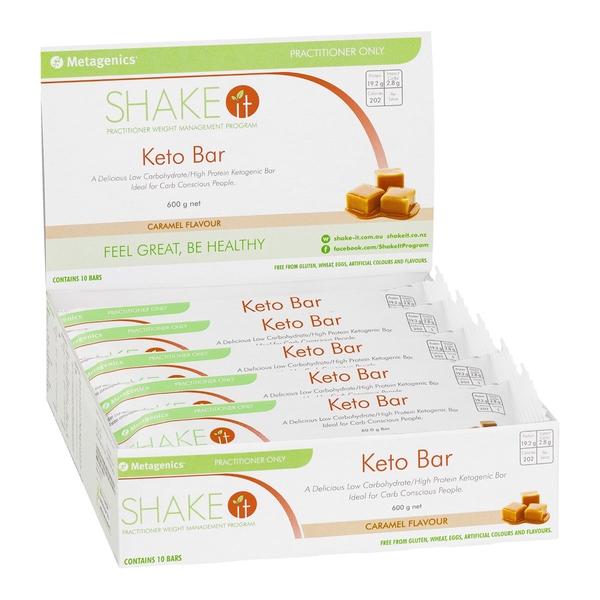
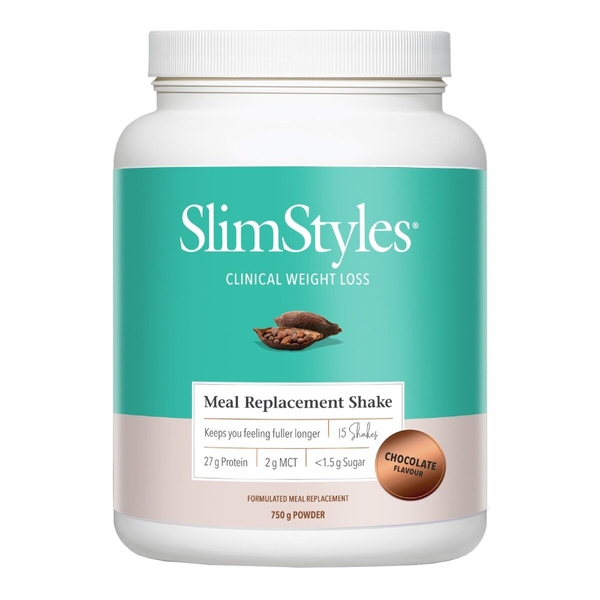
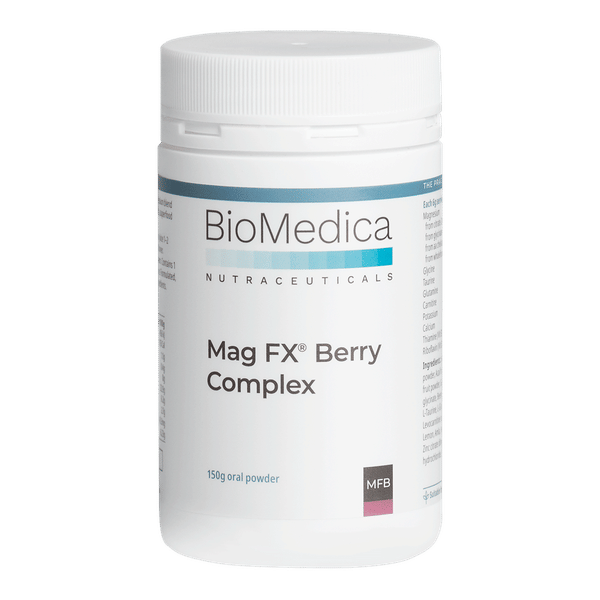

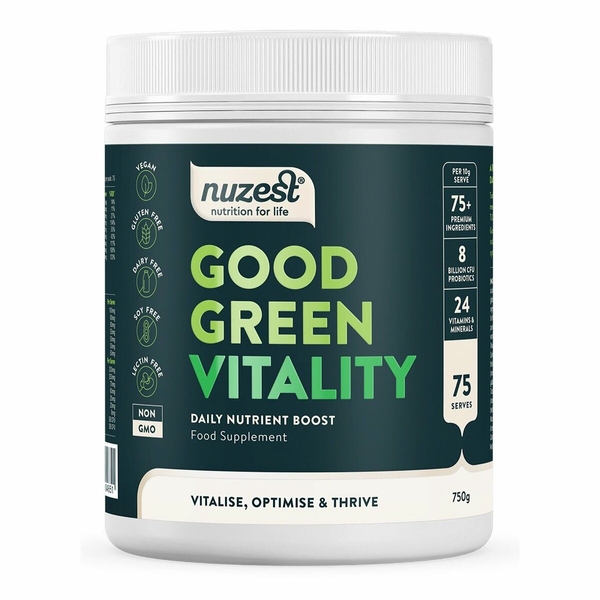
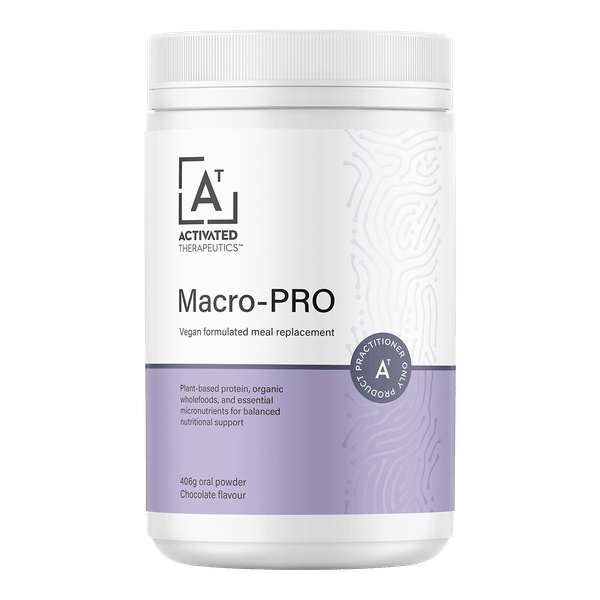
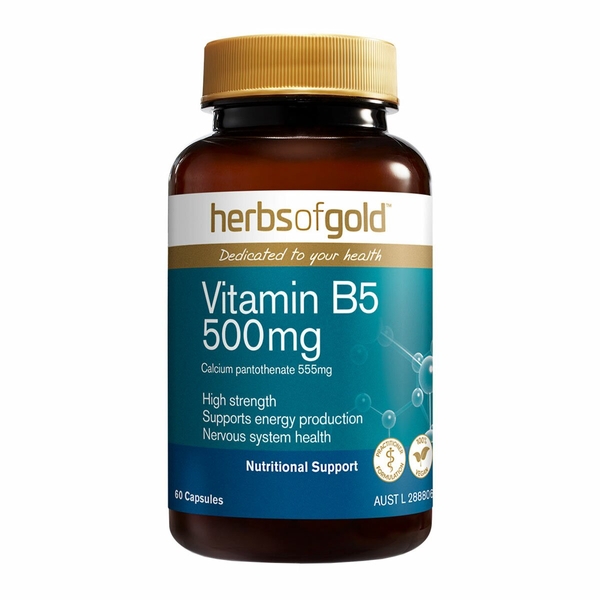
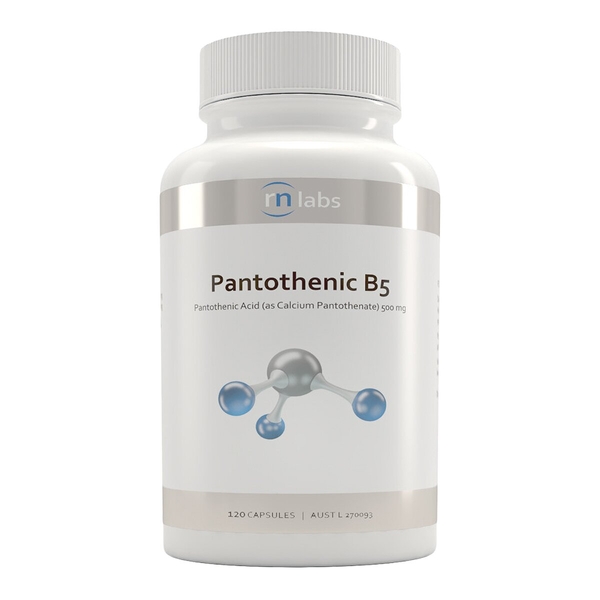
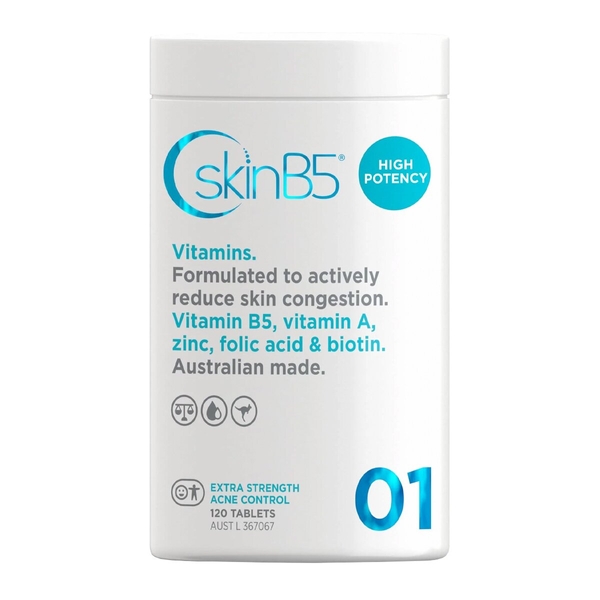
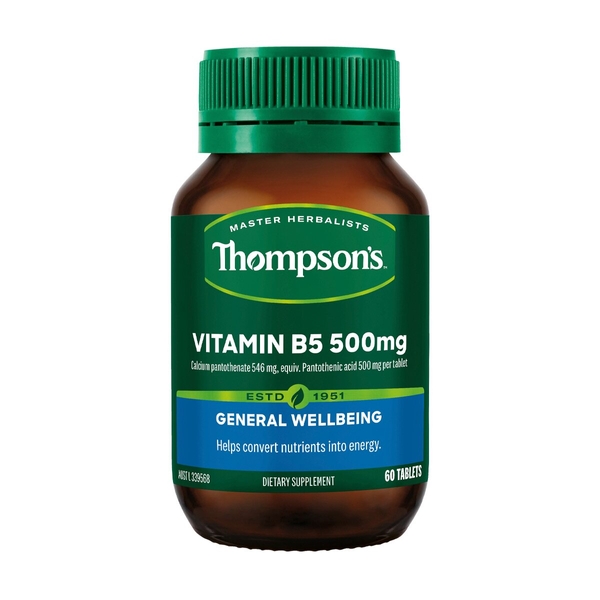
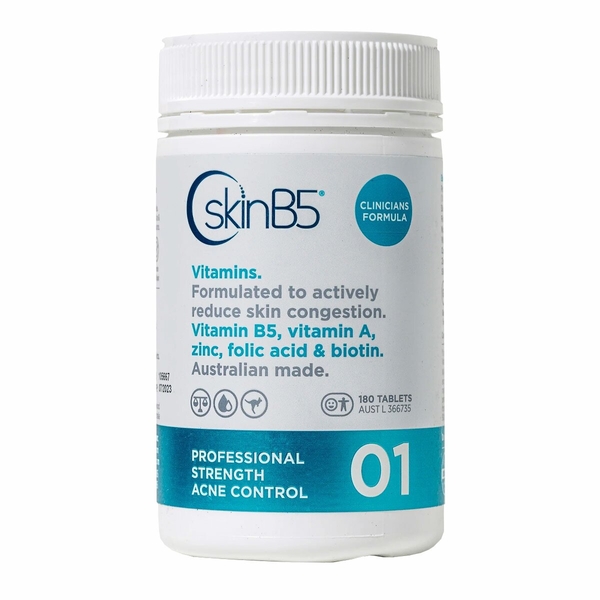
.png)
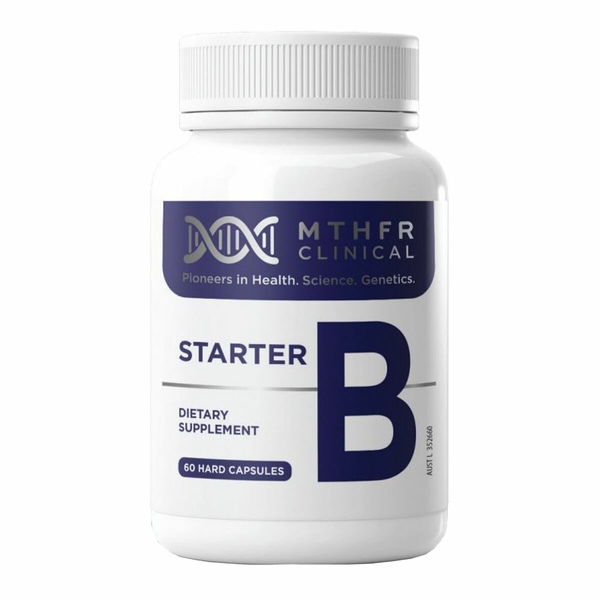
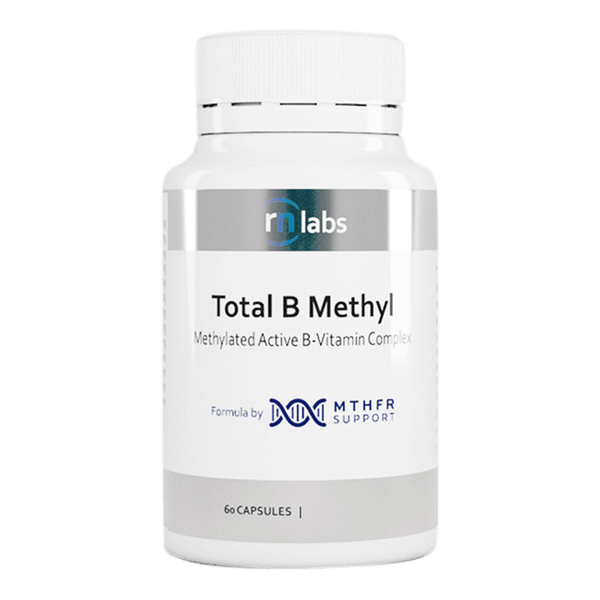
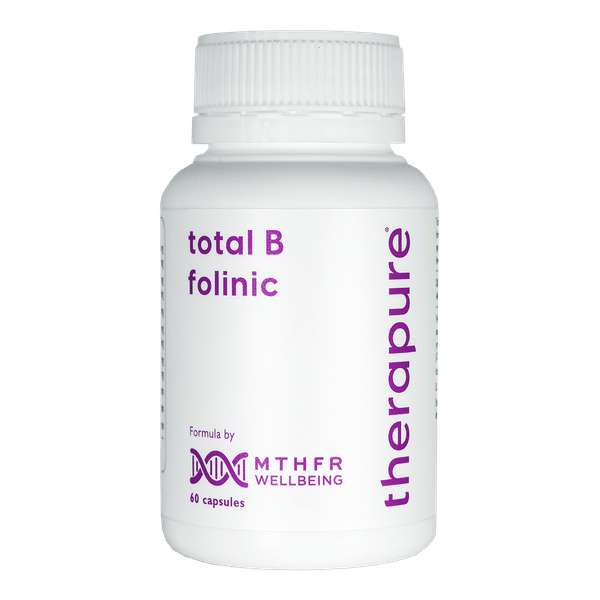
.png)
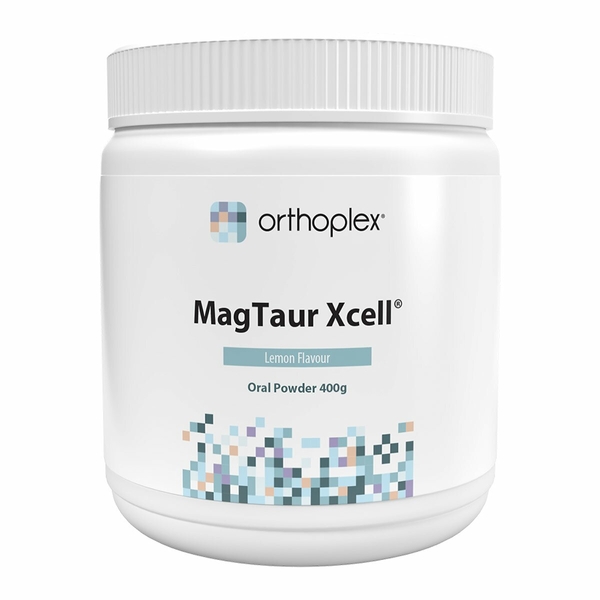
.png)
